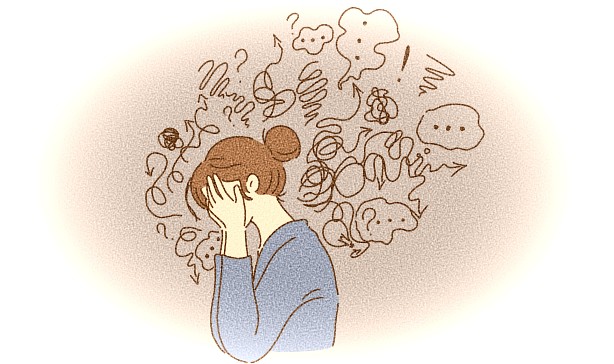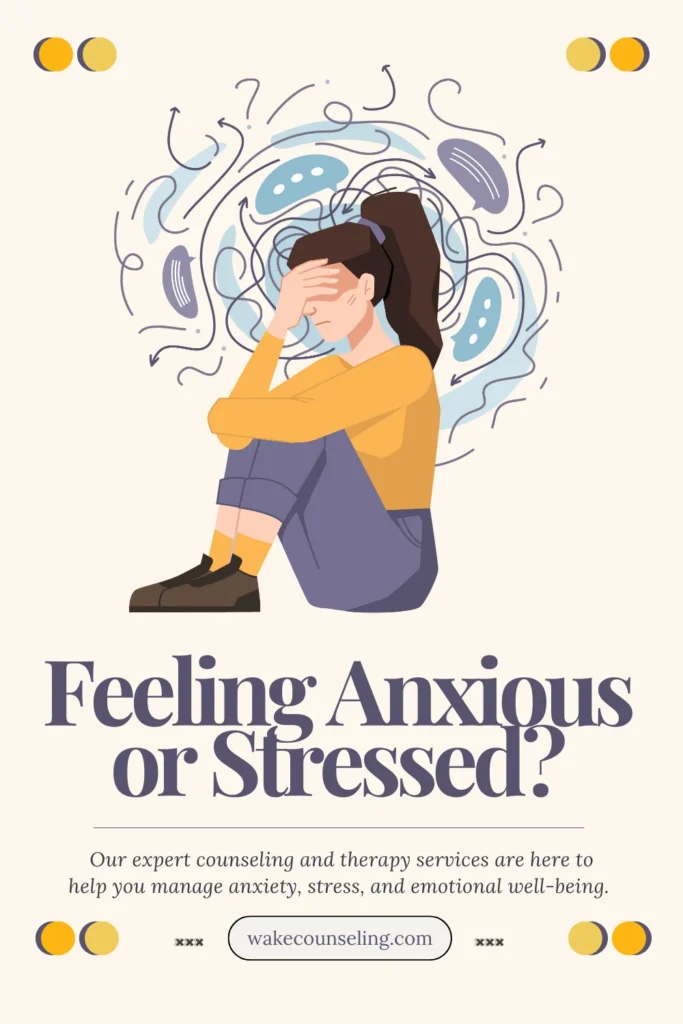Reclaim your mental well-being through effective therapy for anxiety
Reclaim your mental well-being through effective therapy for anxiety
Blog Article
Exploring Various Methods in Counselling for Anxiousness Disorder for Lasting Adjustment
When tackling anxiousness conditions, it's important to explore a variety of therapy approaches. Each approach uses unique understandings and tools to help you handle your signs properly. You may locate that integrating techniques can generate the very best outcomes. Nevertheless, comprehending the subtleties of these approaches is crucial to promoting lasting adjustment. Suppose the appropriate combination could release a new degree of emotional health for you?
Understanding Stress And Anxiety Disorders: A Quick Introduction
Anxiety disorders, which impact millions of people worldwide, can greatly impact every day life. You may experience overwhelming sensations of fear or worry that appear unmanageable. These sensations can cause physical signs like a racing heart, sweating, or also wooziness. Usual sorts of anxiousness disorders consist of generalised anxiousness problem, panic attack, and social anxiousness problem. Each has distinct signs, but they all share a propensity to disrupt your routine and relationships.Understanding the origin of your anxiety is crucial. It could originate from genes, brain chemistry, or life experiences. Identifying your triggers can help you handle your reactions much better. It's essential to keep in mind that you're not alone in this battle. Lots of people deal with comparable difficulties, and seeking aid is a strong action towards feeling better. By discovering about anxiousness problems, you're already on the path to understanding and managing your problem better.
Cognitive-Behavioral Treatment: Testing Unfavorable Idea Patterns
In Cognitive-Behavioral Therapy, you'll begin by identifying the adverse thought causes that add to your anxiety. Counseling services for anxiety. As soon as you identify these thoughts, you'll deal with changing them with more favorable choices. Together, you'll develop efficient coping strategies to help manage your anxiety in everyday circumstances

Identifying Unfavorable Idea Triggers
Recognizing the details triggers behind your adverse ideas can be crucial in taking care of anxiousness when you experience moments of distress. Start by paying interest to situations that provoke feelings of fear or anxiety. Is it a congested room, an upcoming deadline, or a discussion with particular people? Write down these circumstances in a journal. This will help you recognize patterns in your reasoning. Additionally, notice physical sensations that accompany your unfavorable thoughts, like a racing heart or rigidity in your chest. By pinpointing these triggers, you get understanding right into what's fueling your anxiety. Comprehending these connections is the initial step in testing those thoughts and ultimately reclaiming control over your emotional reactions.
Changing Thoughts With Positives
Challenging adverse idea patterns is a crucial action in transforming your mindset and lowering anxiousness. You might commonly find on your own entraped in cycles of insecurity or catastrophic reasoning. Rather than letting these thoughts dictate your sensations, method changing them with reasonable options or favorable affirmations. As an example, when you believe, "I can not manage this," change it to, "I can manage challenges one action at a time." This straightforward adjustment can considerably influence your mood. Consistently recognizing and responding to these negative thoughts helps produce a healthier interior discussion. Remember, it takes some time and initiative, but constantly exercising this strategy can cause long lasting adjustment, empowering you to deal with anxiousness with renewed self-confidence and strength.
Structure Coping Methods With Each Other

Mindfulness and Acceptance-Based Approaches: Growing Present-Moment Awareness
As you navigate the complexities of anxiousness, including mindfulness and acceptance-based techniques can substantially boost your capability to cultivate present-moment awareness. By concentrating on the present moment, you'll locate that you can observe your ideas and feelings without judgment. This practice helps you acknowledge your stress and anxiety without feeling overwhelmed by it.Engaging in mindfulness exercises, such as deep breathing, body scans, or directed reflections, permits you to ground on your own in your existing experience. Acceptance-based strategies motivate you to welcome your emotions as opposed to battle against them. When you accept your feelings, they shed their power over you.Incorporating these methods into your day-to-day regimen can transform how you respond to anxiety. You'll create strength and discover to browse stressful situations with higher simplicity. Inevitably, growing present-moment understanding lays the structure for long lasting change, empowering you to lead a much more fulfilling life.
Exposure Treatment: Facing Worries Slowly
Exposure therapy helps you confront your anxieties in a steady method, making it less overwhelming. You'll discover techniques to encounter anxiety-provoking situations action by step, while additionally building coping approaches to handle your responses (Counseling services for anxiety). This approach equips you to take control and decrease anxiety with time
Steady Exposure Strategies
When dealing with anxiety, progressively challenging your fears can be an effective way to regain control. This technique, referred to as gradual direct exposure, includes gradually subjecting yourself to the situations or items that activate your anxiousness. Beginning with less intimidating scenarios and progressively work your method up to even more tough ones. If you're terrified of public speaking, you might start by speaking in front of a mirror, then progress to sharing ideas with a pal, and at some point attend to a tiny group. Each step aids desensitize you to the fear, constructing your confidence in time. Bear in mind, it's vital to pace yourself and celebrate little success as you relocate with this process, strengthening your ability to handle anxiety efficiently.
Building Coping Methods
Structure reliable coping approaches is essential for handling stress and anxiety, particularly as you face your worries progressively. One powerful technique is direct exposure therapy, where you begin by facing your fears in a controlled way. Begin with less daunting situations and gradually function your means as much as even more challenging circumstances. This steady direct exposure aids desensitize you to anxiousness sets off, making them much less overwhelming.Incorporate relaxation methods, such as deep breathing or mindfulness, to calm your mind during exposure. Track your progress, celebrating tiny triumphes along the road to boost your confidence. Remember, it's all right to take your time; the goal isn't perfection yet constant renovation. By developing these techniques, you'll empower on your own to browse anxiety and embrace life more fully.
Psychodynamic Treatment: Uncovering Root Causes of Stress And Anxiety
Psychodynamic therapy discovers the subconscious mind, disclosing the origin triggers of your anxiousness. By examining your thoughts, feelings, and past experiences, this approach assists you uncover underlying conflicts and unsettled issues that might contribute to your present anxiety. You'll work with a therapist to investigate childhood experiences, partnerships, and psychological patterns that form your feedbacks today.As you get insight right into these much deeper layers of your psyche, you'll start to recognize exactly how previous occasions affect your existing behavior. This understanding can bring about catharsis, permitting you to refine emotions you could have suppressed.Through the restorative partnership, you can also determine defense reaction that may have established with time, providing a more clear course to transform. Eventually, psychodynamic therapy furnishes you with the devices to resolve your stress and anxiety at its core, promoting enduring improvement in your psychological health.
All Natural and integrative Approaches: Integrating Strategies for Greater Efficacy
Incorporating different restorative strategies can enhance your journey toward taking care of stress and anxiety better (Counseling services for anxiety). By combining aspects from cognitive-behavioral treatment, mindfulness techniques, and holistic strategies, you can create a customized approach that resolves your distinct demands. As an example, you could use cognitive-behavioral techniques to challenge adverse idea patterns while including mindfulness workouts to ground yourself in the here and now moment.Additionally, checking out all natural practices such as yoga exercise or meditation can advertise leisure and reduce stress and anxiety signs and symptoms. This mix permits you to create greater self-awareness and resilience.Experimenting with these varied methods can help you find what reverberates most with you. Remember, it's about locating a synergy that works, as opposed to staying with a solitary method. This integrative strategy not only provides prompt alleviation but likewise promotes lasting skills for managing anxiety, equipping you to recover control over your life

The Function of Support Systems: Structure Resilience With Link
While it might seem that managing anxiousness is a solitary journey, having a solid support group can play an essential function in your resilience. Surrounding on your own official source with compassionate friends, family members, or support system produces a risk-free room where you can openly share your experiences and sensations. When you get in touch with others, you advise yourself that you're not the only one in this struggle.These connections provide inspiration and can offer functional coping strategies that have actually benefited others. It's likewise an opportunity to obtain point of view; good friends can aid you see scenarios in different ways, reducing sensations of isolation.Moreover, emotional assistance fosters a feeling of belonging, which can considerably alleviate anxiety signs. By leaning on your support group, you can develop strength and tackle challenges better. Remember, connecting for help suggests stamina, and it can make all the difference in your trip toward taking care of anxiety.
Often Asked Questions

What Are the Common Signs And Symptoms of Stress And Anxiety Problems?
You might experience restlessness, fatigue, difficulty focusing, irritability, muscular tissue tension, and rest disruptions. Physical signs can consist of rapid heart beat, sweating, and trembling. Identifying these indicators early can aid you look for suitable assistance and treatment.
How Much Time Does Treatment Normally Last for Anxiety Conditions?
Treatment for anxiousness disorders generally lasts anywhere from a few weeks to several months. It truly relies on your specific requirements, development, and the methods your therapist utilizes to assist you handle your anxiety successfully.
Can Medication Be Used Together With Treatment for Stress and anxiety?
Yes, drug can certainly be utilized alongside therapy for anxiousness. Integrating both approaches typically boosts therapy effectiveness, helping you manage symptoms while discovering underlying issues through therapy. Always consult your doctor for personalized guidance.
Exist Self-Help Methods for Taking Care Of Anxiety?
Yes, there are several self-help techniques for managing anxiety. You can exercise mindfulness, take part in normal exercise, preserve a well balanced diet regimen, develop a regular, and utilize deep breathing techniques to help in reducing anxiousness signs and symptoms effectively.
Just how Do I Know if I Need Professional Aid for Anxiousness?
You should take into consideration looking for expert assistance for anxiety if it disrupts day-to-day live, creates considerable distress, or if self-help methods aren't working. Trust fund your instincts; getting to out can bring about much better coping abilities and support. Typical kinds of stress and anxiety problems consist of generalized anxiousness problem, panic condition, and social anxiousness condition. When you encounter minutes of distress, acknowledging the particular triggers behind your negative ideas can be vital in taking care of anxiety. Changing unfavorable ideas is only the start of managing anxiousness efficiently. By examining your ideas, sensations, and past experiences, this method assists you discover underlying disputes and unresolved issues that might add to your current anxiousness. It's also a possibility to acquire point of view; pals can help you see scenarios differently, minimizing sensations of isolation.Moreover, emotional support cultivates a sense of belonging, which can considerably alleviate anxiousness signs and symptoms.
Report this page